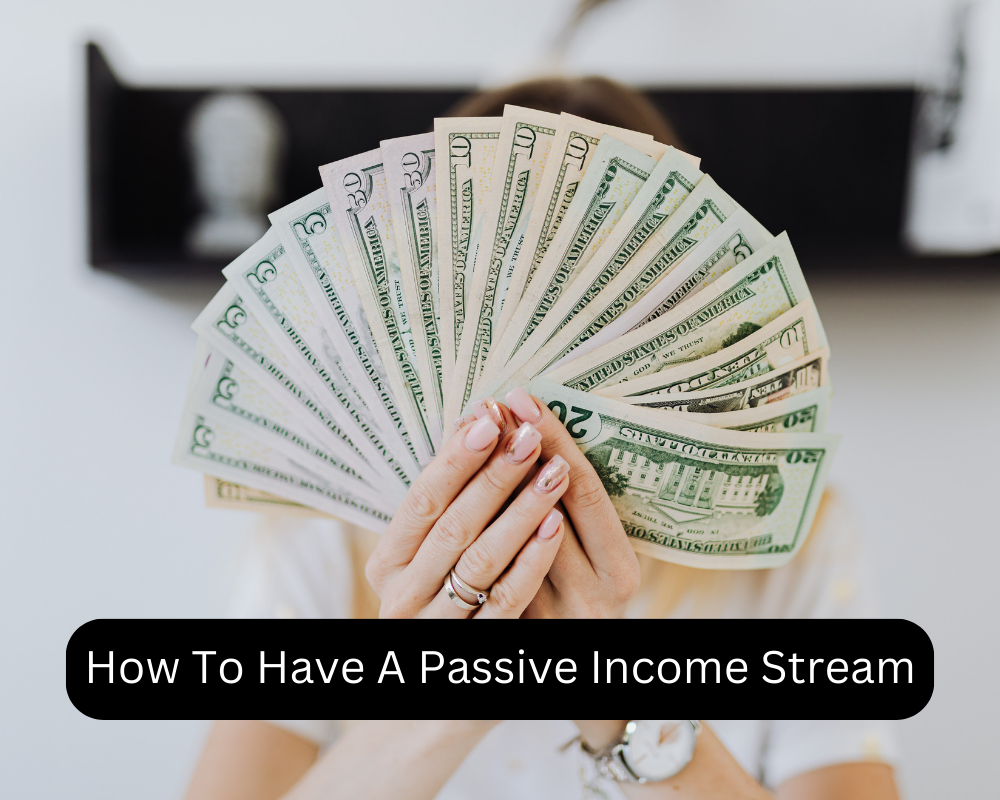A passive income stream is something many people are looking at having. One of the reasons for this is so they can cope with the cost of living crisis. Other people may do it just to earn extra money so they can spend it on non-necessities.
Thanks to the digital era, it is easier to get a passive income compared to previous decades. Let’s look at the different methods you can earn a passive income that requires little work.
Passive income requires work or investment before you start to see the rewards. However, the effort is minimal and may only require you to monitor now and again.
There are three different types of passive income. One of those includes investing which is where you generate a large return such as savings accounts or the stock market. Another form of passive income is renting out property such as a room, a house or your vehicle. The final option is asset building and this is where you will generate revenue from a website, blog, ebooks, music, graphics or anything else you may have created.
Different Passive Income Strategies

Dividends From An Investment
The stock market is a great way to earn a passive income. Dividends are paid to shareholders from companies per quarter, once quarterly earnings have been released. However, this will require an initial investment and the more you invest, the more money it returns.
The only issue with this is that they are not guaranteed per quarter. For example during the pandemic, many companies suspended their dividend payments to their shareholders. If you want to create a pension pot for later in your life, this is a great form of passive income.
Company Shares
Many companies pay dividends to their shareholders and they are usually paid quarterly or on a half-year basis. Sometimes, companies can pay dividends on a one-off basis. However, it is advised you invest your money into blue chip stocks if you wish for a current dividend yield.
Investment Trusts
Investment trusts are another form of passive income. These invest in assets such as shares and most trusts will pay dividends to investors. Furthermore, investment trusts are similar to stocks as they have a live trading price can fluctuate depending on how many people invest in the assets.
One positive of an investment trust is they are allowed to keep hold of 155 of its annual income for a cash reserve. This allows them to build up a cash reserve so they can keep a consistent dividend payment to their shareholders, even if the market has decreased in value.
Funds
Mutual funds are like an investment trust however, they do not have a live price. Instead, they are re-priced each day, depending on the current value of their assets. Furthermore, when purchasing a fund, you usually have the choice of income or an accumulation unit. With an accumulation unit, a dividend will be used to purchase additional units. This gives the investor the opportunity for future growth.
Savings Accounts
Savings Accounts
This is one you likely have heard of. A savings account is a great way to watch your money grow over time as you invest more money. This is a safer form of passive income compared to the others.
The interest rate for most banks in the UK is roughly around 5% however, this can vary. Make sure you review your interest rate regularly as it could have a limited bonus rate.
Before you put money into an investment account, it is advised you check to see if it is protected by the Financial Services Compensation Scheme. This protects customers up to £85,000 in case the bank collapses.
Although a savings account is much safer compared to investing in the stock market, the returns are much lower.
Read: Starting a Garment Export Business in 2023
Property Investment
Income From Property
Property investment can be more stressful and difficult. However, the profits you make can be much greater than a savings account or stock investments. Plus, this can be a good form of passive income for short-term and long-term investments.
There are a couple of downsides to income from property. The first negative is that it will require a large initial investment. There are also management costs with the property as well such as fixing a broken down boiler or getting a plumber to fix burst pipes. Sometimes, management fees can leave you out of pocket for a month.
If you have enough money to invest in property, you should consider it. As mentioned before, it is great for short-term and long-term profits. All you need to worry about is managing the property which can sometimes be stressful.
To Conclude
As you can see, there are many ways to earn money through passive income. Sometimes, people will do this as a full-time job and others will do it on the side of their primary job. However, there are pros and cons to each of these different techniques. If you have the time and the money to invest in property, this is something you should consider due to the significant returns you can receive in 20/30 years.
If you are a landlord and have issues with your tenants, you may need to take legal action. Seeking landlord legal advice may be the only option when tenants are not paying their bills and are damaging your property.


